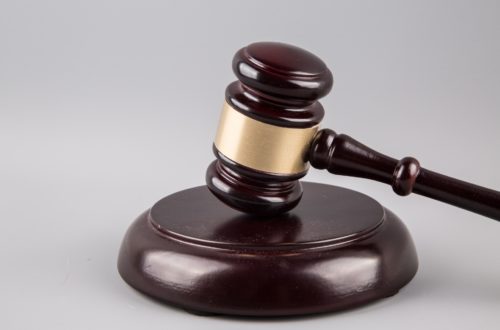Misusing social media can get you fired if you’re not careful. It can also cost you a prospective job, scholarship, or enrollment at a university. If you post something incendiary, self-incriminating, racist, or anything that otherwise casts the company you work for in a bad light, you might be fired for it. When combing through stacks of resumes that all begin to look the same, some employers or admissions officers may turn to the social media of candidates and applicants for more information and finding questionable or incendiary content may cost you as well.
An increasing number of states are banning employers from requesting access to their employees’ and applicants’ social media posts. Generally, however, the ban is on employers requesting login information and passwords to social media sites and not on the viewing of publicly posted information.
The dos and don’ts of social media in relation to your employer or prospective employer may seem obvious, but and the internet is rife with stories of people getting fired for their social media. In fact, just days ago, a CBS lawyer was fired for posting an extremely insensitive remark on Facebook about the mass shooting in Las Vegas.
The following is not an exhaustive list or legal advice, but it’s a good start to understanding that your social media posts may leave you unemployed or unemployable:
Dos:
- Use good judgment. If you have even one inkling that “hmmm, I wonder if I shouldn’t post this because what if my boss sees it?” The answer is: DON’T POST IT!
- Understand your audience. If you choose to post publically, it is important to know that you can go viral. Maybe you get a record deal out of your viral tirade on Dr. Phil (I’m looking at you, Cash Me Ousside Girl) or maybe you get fired. To state the obvious: the latter is a lot more likely.
- Check your privacy settings and test them. Facebook, for example, updates their privacy settings from time to time and it’s important that you are up-to-date with the latest update.
- Remember that once you share content, it’s out there. Even deleted posts aren’t safe. Sirius XM DJ Anthony Cumia was fired from his job because of his racist Twitter tirade that was deleted, but not before his employer found out about it. Furthermore, anyone can take a screenshot of your social media posts and repost them, making it impossible for you to control.
- Take stock of what you’ve already posted from time to time. If you are applying to jobs or colleges, it doesn’t hurt to take stock of your social media posts and delete any that may be looked down upon by a prospective employer or admissions officer. It might not save you since nothing is ever really deleted, but it’s not a bad idea either.
Don’ts:
- Don’t post anything that disparages your employer or your coworkers. Posting about having a long day might be one thing, but talking about how Becky with the Good Hair is a no-good, dirty, rotten homewrecker and you wish she’d choke to death on her morning coffee is quite another.
- Don’t accidentally tell on yourself. Calling in sick and then posting pictures later that day of you at the Masters eating pimento cheese sandwiches might come back to bite you. Use your head.
- Don’t post pictures of yourself in questionable (or absent) attire if you work for a company that might frown on it. A Hooters waitress might be able to get away with it, but those that work for more professional companies, like banks, might not.
- Don’t post negatively about clients or customers. An unhappy Applebee’s waitress was fired for complaining about customers’ tips on Reddit with a picture of the receipt. Again, you never know if you might to go viral and even if it doesn’t, a coworker could show it to your boss.
- Don’t post anything self-incriminating. College admissions officers and prospective employers might not appreciate a picture of you with a bong surrounded by a cloud of smoke. If you work at a dispensary or if you’re in a state where marijuana is legal, you may be in the clear, but it’s all about knowing your audience. Showing off stolen goods or money is less of a gray area and could get you arrested as well.
These dos and don’ts are especially important to consider if you work in an at-will state, like North Carolina. In these states, if your employment contract does not mention language regarding being terminated only for “just cause” or something similar, then you can be fired for almost any reason, the major exception being discrimination. Of course, if you just went on a racist tirade, your company probably has “just cause” to fire you, so your employment contract won’t save you anyway.
As you may already know, the Constitution doesn’t apply to private employers, so private employees can’t claim the right to have freedom of speech if they are fired for something stupid they posted on their Facebook wall or tweeted out at 4:00 a.m. For more information about the constitutionality of free speech and the workplace, the American Bar Association has a good, in-depth article about it.
Lindley Law in no way condones the social media posts of any of the aforementioned tweeters, Redditors, and Facebookers. They are merely examples of what not to do. For more information about our firm and other blog posts, please visit us at www.lindleylawoffice.com.



